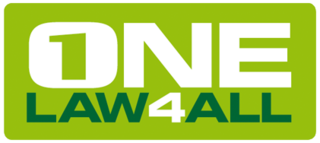
The Māori Party is an indigenous rights-based centre-left political party in New Zealand. Tariana Turia founded the party in 2004 after resigning from the governing centre-left Labour Party, in which she was a minister, over the foreshore and seabed ownership controversy. She and Pita Sharples, a high-profile academic, became the first co-leaders.

The Electoral Commission is an independent Crown entity set up by the New Zealand Parliament. It is responsible for the administration of parliamentary elections and referenda, promoting compliance with electoral laws, servicing the work of the Representation Commission, and the provision of advice, reports and public education on electoral matters. The Commission also assists electoral agencies of other countries on a reciprocal basis with their electoral events.
New Conservative is a conservative political party in New Zealand. It advocates for social conservatism and environmental pragmatism, with lower taxation and reduced government spending.

1Law4All was a registered political party in New Zealand. The party was launched in June 2013 and was temporarily led by Tom Johnson. The party supported removing references to the Treaty of Waitangi from legislation, abolition of the Waitangi Tribunal and Māori electorates, repeal of the Marine and Coastal Area Act 2011, and withdrawal of New Zealand from the UN Declaration on the Rights of Indigenous Peoples. The party never contested an election and was deregistered in May 2015.

The Internet Party was a political party in New Zealand that promoted Internet freedom and privacy. Founded in January 2014 with the support of Internet entrepreneur Kim Dotcom, the party contested the 2014 New Zealand election as part of an electoral alliance with the Mana Movement but failed to win any seats in the New Zealand House of Representatives. The Internet Party contested the 2017 general election under the leadership of journalist Suzie Dawson but failed to win any seats.
The Expatriate Party of New Zealand is an unregistered political party that seeks to represent people who consider themselves New Zealanders but who do not reside in New Zealand. It contested one electorate, but not the party vote, at the 2014 general election.
The New Zealand Outdoors Party is a registered political party in New Zealand. The party is led by co-leaders Alan Simmons and Sue Grey and seeks to protect New Zealand's environment and "outdoors heritage."

The Opportunities Party is a centrist political party based in New Zealand. It was founded in 2016 by economist and philanthropist Gareth Morgan. The party is based upon an idea of "evidence-based policy", with policy priorities of "Universal Basic Income (UBI)", "Affordable Housing and Rent", "Smart Small Business", and "Climate Friendly Recovery".

The 2020 New Zealand general election will be held on Saturday 17 October 2020 to determine the membership of the 53rd New Zealand Parliament. The previous parliament was elected on 23 September 2017 and was officially dissolved on 6 September 2020.
GOdsownNZ was an unregistered political party in New Zealand. The party was Christian and socially conservative and described itself as "non-P.C.", but denied being "right wing" or "anti-refugee". It was founded in April 2017 by former Conservative Party of New Zealand board member Claire Holley.
Climate First is an unregistered political party in New Zealand. The party is focused on highlighting and addressing the threat of climate change. It also supports a universal basic income.
Vision NZ is a nationalist political party in New Zealand led by Hannah Tamaki, the co-leader of the Christian movement Destiny Church. The party was announced in May 2019 and it intends to contest the 2020 New Zealand general election both for electorate seats and the party list vote.
The Real NZ Party is an unregistered political party in New Zealand. The party is nationalist and socially conservative, opposing "open borders, interference by the UN, Government excess, waste and interference, far left and right ideologies, the PC brigade, tyranny by minorities, unlawful religious beliefs and terrorism". The party has used the slogan "Where We Go One, We Go All" (WWG1WGA), also used by the QAnon conspiracy theory.
The Kiwi Party is an unregistered reactionary political party in New Zealand. The party was formed after the Christchurch mosque shootings to oppose the Arms Amendment Act 2019, and to support "free speech as well as individual rights".

The Advance New Zealand Party is a political party in New Zealand led by Jami-Lee Ross and Billy TK Jr. The idea was first unveiled in a newsletter from Ross released in April 2020. Jami-Lee Ross claims the party is a centrist and anti-corruption movement designed to appeal to voters "in the middle"; however, their main policies represent the political fringe rather than centre. Ross had been a member of the centre-right New Zealand National Party until a public spat with leader Simon Bridges during which he accused Bridges of corruption. Ross has since been accused of sexual harassment and bullying, and is currently under investigation for corruption himself. In July 2020, it entered into a pact with New Zealand Public Party, a conspiracy theory party.
Direct Democracy New Zealand is an unregistered political party in New Zealand. It advocates for binding referendums, and opposes large-scale immigration, and "race-based" policies.

The One Party is a Christian fundamentalist political party in New Zealand. It is led by Edward Shanly and Stephanie Harawira, an anti–synthetic drugs activist. The party states that New Zealand is a Christian nation, and should be run as such. It opposes abortion and euthanasia. Harawira incorporated One Party Limited as a New Zealand limited company in September 2019.
The New Zealand TEA Party is a registered political party in New Zealand. The party is led by former 2019 Auckland mayoral election candidates John Hong and Susanna Kruger.
Heartland New Zealand is a New Zealand political party founded in 2020. The party is rural-based, and opposes the New Zealand Emissions Trading Scheme, the Paris Agreement, and attempts to limit the environmental impacts of agriculture. The party is led by former Franklin District mayor Mark Ball, the candidate for Port Waikato, and is backed by Hamilton entrepreneur Harry Mowbray, a billionaire who with his siblings was on the 2019 NBR Rich List.
Oytcho-Visha is an unregistered political party in New Zealand. The party claims to be "a quasi-political party, motivated chiefly by bringing down New Zealand government." It was described by The Spinoff as "purportedly a political party disguised as an art project".







